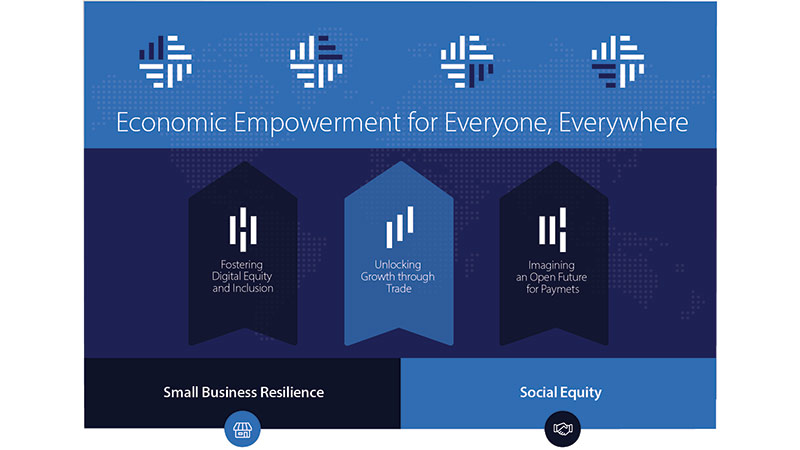Visa is guided by our mission to connect the world to enable individuals, businesses, and economies to thrive. When economies are inclusive and equitable, they uplift everyone, everywhere. This means that the benefits of digital payments and technology can go to all.
As of 2017, about 1.7 billion people lacked access to formal financial services, according to the World Bank’s Global Findex database. In 2015, Visa made a sustained commitment to reach the financially underserved, reaching our goal of connecting 500 million previously unbanked people to digital payment accounts by 2020. Since then, the proportion of people able to receive digital payments has increased significantly, largely due to innovation. But we know that this is not enough.
Expanding financial services to low-income households and small businesses can help create a more inclusive society. Foundational questions remain regarding how to best use digital payments and connectivity to create sustainable value. VEEI research will provide guidance to help economically empower everyone, everywhere.
Across the world, barriers to economic empowerment persist. Estimates show that in the United States alone, the racial wealth gap’s dampening effect on consumption and investment will cost the US economy between $1 trillion and $1.5 trillion between 2019 and 2028.1 Similar patterns exist in countries across the globe, with particular groups prevented – explicitly or implicitly – from realizing their economic potential. The losses to an economy from the underrepresentation of women have been estimated to range from 10 percent of GDP in advanced economies to more than 30 percent in South Asia and in the Middle East and North Africa.2 Significant barriers persist for people with disabilities as well as neurodiverse populations. Conversely, the gains from economic empowerment are substantial.
Digital equity and inclusion rests on two overarching foundations: enablement and the ecosystem. Enablement entails empowering an individual by eliminating barriers to knowledge and skills, access and opportunity. Ecosystems refer to the physical infrastructure, human networks, governance frameworks, and ownership structures that interact powerfully in today’s hyper-connected digital world. VEEI researchers will examine various elements of enablement and ecosystems and provide recommendations to help encourage movement towards digital equity and inclusion.
One important element is the way in which individuals are enabled by the societies in which they live. Visa believes in the importance of a diverse and inclusive economy and a diverse and inclusive workforce. For its part, Visa has established a $10 million Black Scholars and Jobs Program for college-bound Black and African American students, recognizing the multilayered barriers to economic empowerment. One of the key missions of the VEEI will be to study the impact of fully including diverse groups in the economy across the world.
